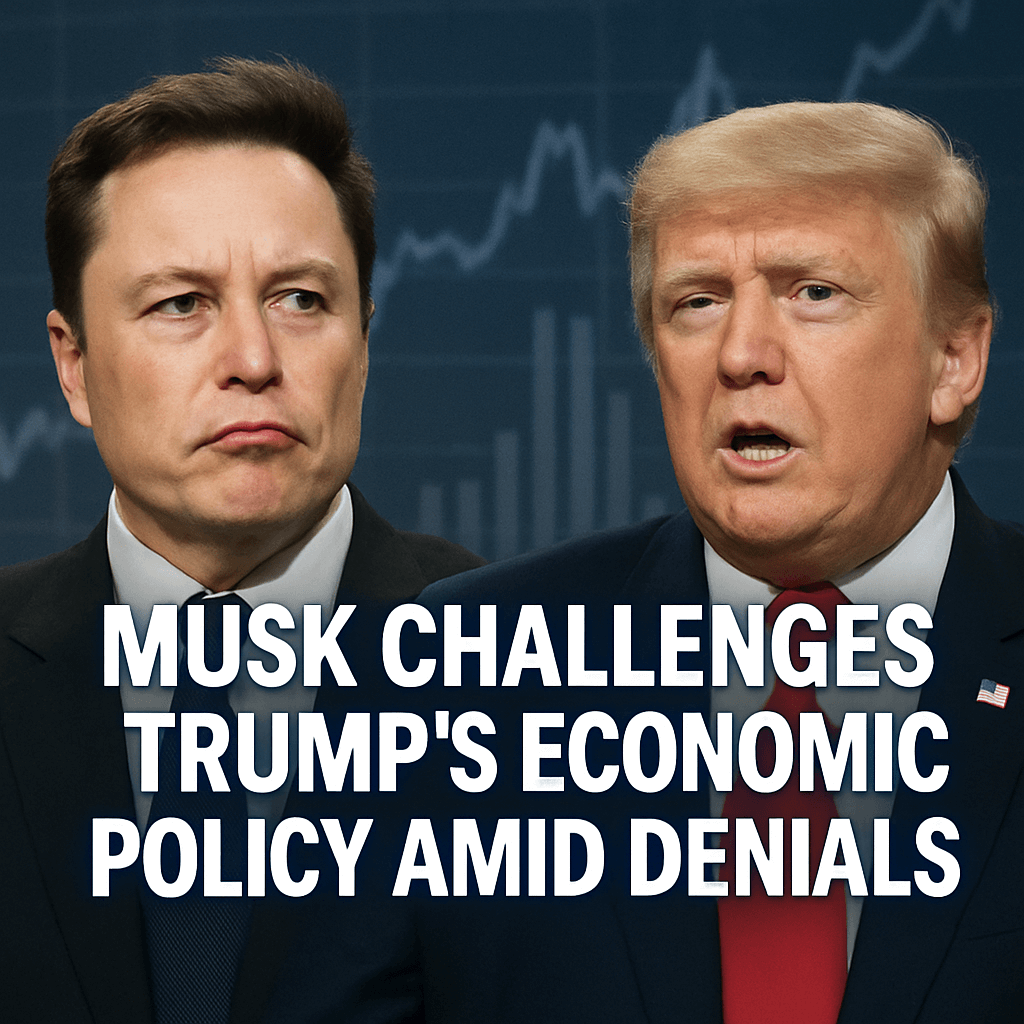Musk Challenges Trump’s Economic Policy Amid Denials

Elon Musk, the CEO of Tesla and SpaceX, has vocally denounced Donald Trump’s flagship economic initiative, referred to as the “One Big Beautiful Bill”. Musk characterized this bill as an “abomination,” arguing that it undermines the fiscal prudence accomplished by his tenure as head of the Department of Government Efficiency (DOGE).
White House Rebuttal
In response to Musk’s criticism, the White House labeled his claims as a “hoax.” A detailed rebuttal asserted that the proposed legislation is projected to reduce the national deficit by approximately $6.6 trillion over the next decade. This reduction would purportedly be achieved through a combination of tariffs, spending cuts, and regulatory rollbacks, which are stated to foster a period of unprecedented economic growth.
Rift Between Musk and Trump
The partnership between Musk and Trump, which had characterized Musk’s initial engagement in politics, has faced scrutiny and speculation regarding its longevity. Following Musk’s criticism of the bill, analysts are reassessing the implications of this fallout. Musk shared an activist-style poster on his social media platform, X (formerly Twitter), labeling the bill as the “Debt Slavery Bill” and encouraging his followers to petition Congress. His post urged citizens to contact their Senators and Congress members, declaring: “Bankrupting America is NOT ok! KILL the BILL.”
The Economic Dilemma
During Musk’s period leading the DOGE, the organization aimed to reduce the budget deficit by $2 trillion, a goal that was ultimately revised downwards. Critics argue that the One Big Beautiful Bill contradicts the fiscal measures that Musk’s team sought to implement, creating a backlash from one of Trump’s former allies.
- Trump’s administration is estimating that the policies embodied in the bill could elevate GDP by between 2.6% to 3.2% over the long term.
- Projections from the Congressional Budget Office (CBO) indicate that the legislation could add an estimated $3.8 trillion to the deficit.
- The anticipated Medicaid spending cuts, which are framed as a primary source of savings, amount to approximately $1 trillion.
This contradiction raises important questions regarding the viability and impact of the proposed economic measures.
Potential Personal Motivations
Unconfirmed reports suggest that Musk’s intensified critique of the Trump administration may also be linked to political motives. Recently, Jared Isaacman, a business associate and supporter of Musk, had his nomination to lead NASA revoked—a move attributed to a “thorough review” of his past associations. Isaacman expressed skepticism about the coincidence of the timing, coinciding with Musk’s departure from Washington D.C. and potentially exacerbating tensions between him and Trump.
White House Counterarguments
In defense of the One Big Beautiful Bill, the White House issued a “mythbuster” that outlined various assertions to refute Musk’s claims. It insisted that the bill’s framework would reduce deficits through increased tariffs and spending cuts, even while acknowledging that tariffs may have adverse effects on the broader economy. The lack of response from Trump to Musk’s allegations is notably atypical, signaling a shift in the dynamic of their relationship.
Conclusion
As the political landscape continues to evolve, Musk’s public dissent raises broader questions about fiscal policy and the direction of Trump’s economic strategy. With House Speaker Mike Johnson stating that Musk’s reversal on the proposed expenditure is erroneous, the implications of this ongoing saga remain to be fully realized.
About the Author
Eleanor Pringle is a financial journalist at Fortune, covering news related to the economy and personal finance.
Source: fortune